Search titles
Displaying results 151 to 160 of 163.

'The Axe Had Never Sounded' »
Place, people and heritage of Recherche Bay, Tasmania
Authored by: John Mulvaney
Publication date: August 2007
‘This book meets well the triple promise of the title – the inter-connections of place, people and heritage. John Mulvaney brings to this work a deep knowledge of the history, ethnography and archaeology of Tasmania. He presents a comprehensive account of the area’s history over the 200 years since French naval expeditions first charted its coastlines. The important records the French officers and scientists left of encounters with Aboriginal groups are discussed in detail, set in the wider ethnographic context and compared with those of later expeditions.
‘The topical issues of understanding the importance of Recherche Bay as a cultural landscape and its protection and future management inform the book. Readers will be challenged to consider the connections between people and place, and how these may constitute significant national heritage.’
Professor Isabel McBryde, AO, FRAI, FAHA, FSA
The Australian National University
For more information on Aboriginal History Inc. please visit aboriginalhistory.org.au.
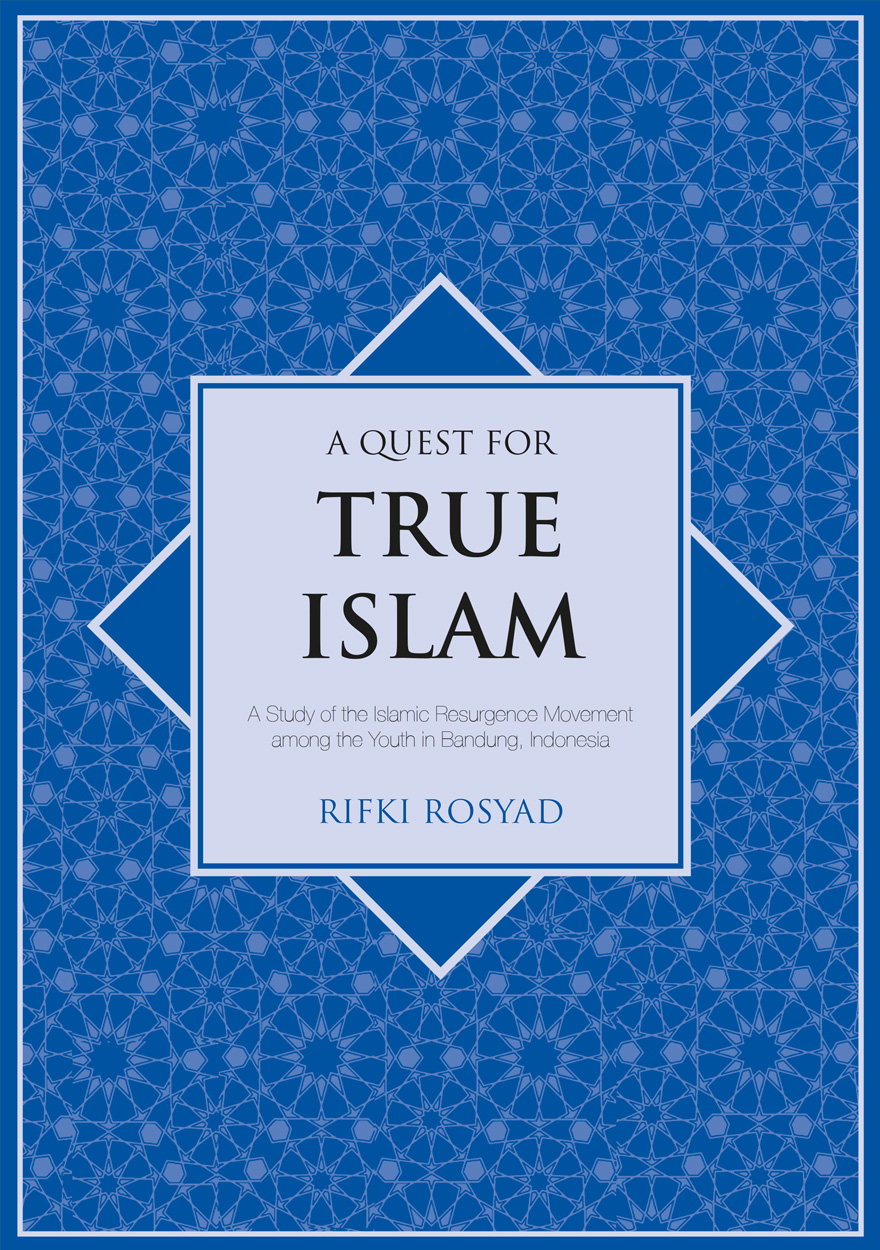
A Quest for True Islam »
A Study of the Islamic Resurgence Movement among the Youth in Bandung, Indonesia
Authored by: Rifki Rosyad
Publication date: July 2007
This study presents the contemporary Islamic resurgence movement among young people in Bandung Indonesia, focusing on its emergence, development and routinisation. It traces various factors and conditions that contributed to the emergence of the movement. It also tries to explain how and why young people (students in particular) turn to Islam, and how the movement is organised and developed among students. Finally, it examines internal changes among various Islamic groups as responses to social, political and cultural changes.
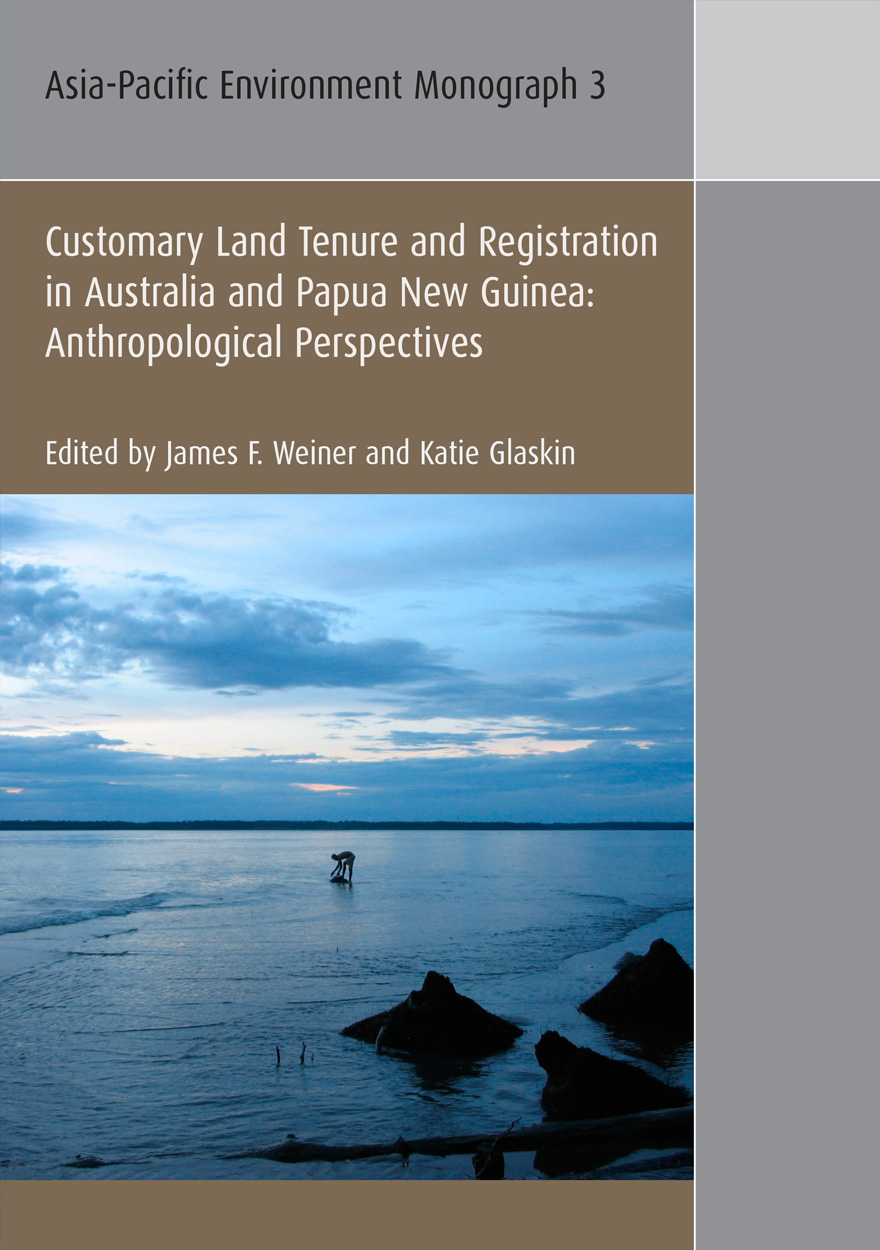
Customary Land Tenure & Registration in Australia and Papua New Guinea »
Anthropological Perspectives
Edited by: James Weiner, Katie Glaskin
Publication date: June 2007
The main theme of this volume is a discussion of the ways in which legal mechanisms, such as the Land Groups Incorporation Act (1974) in PNG, and the Native Title Act (1993) in Australia, do not, as they purport, serve merely to identify and register already-existing customary indigenous landowning groups in these countries. Because the legislation is an integral part of the way in which indigenous people are defined and managed in relation to the State, it serves to elicit particular responses in landowner organisation and self-identification on the part of indigenous people. These pieces of legislation actively contour the progressive evolution of landowner social, territorial and political organisation at all levels in these nation states. The contributors to this volume provide in-depth anthropological case studies of social structural and cultural transformations engendered by the confrontation between states, developers and indigenous communities over rights to customarily owned land.
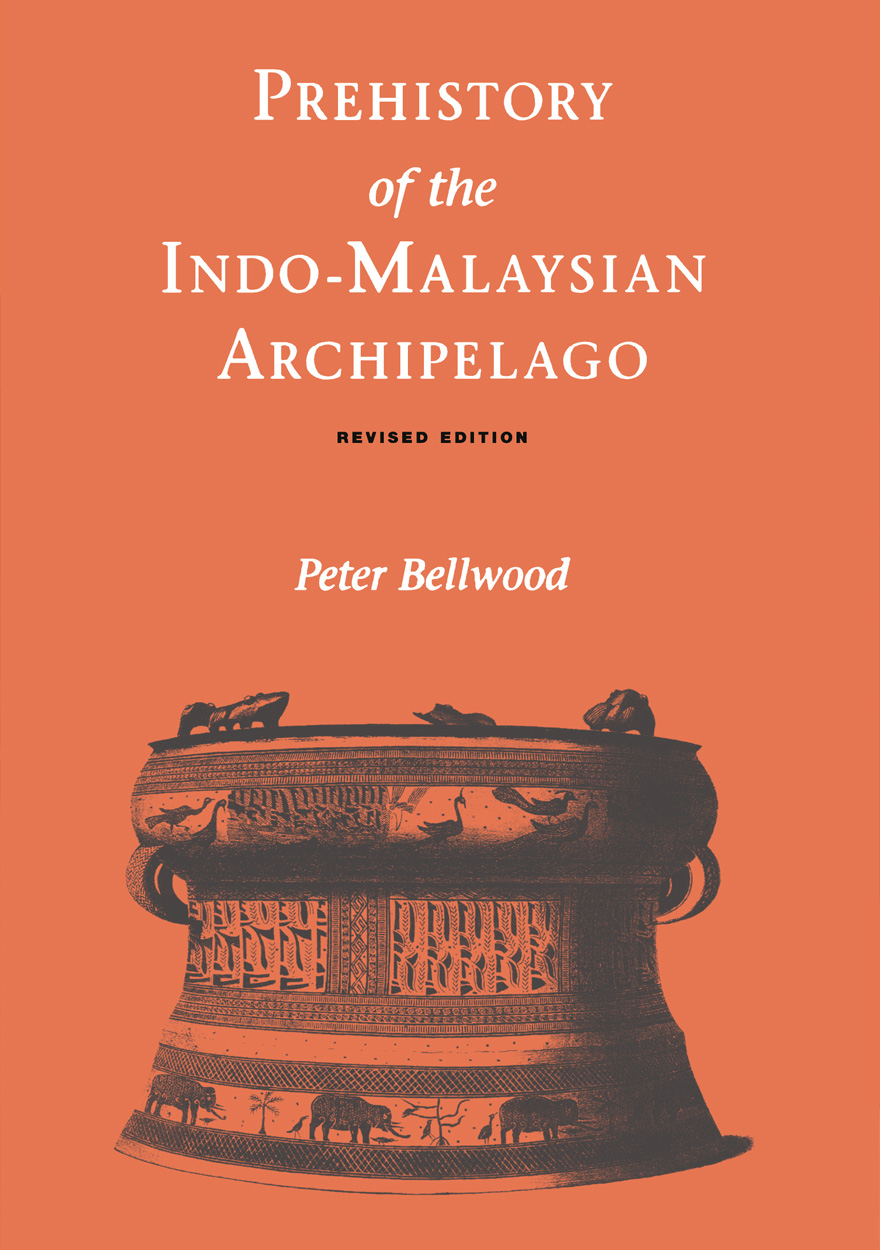
Prehistory of the Indo-Malaysian Archipelago »
Revised Edition
Authored by: Peter Bellwood
Publication date: March 2007
Since its publication in 1985, Peter Bellwood’s Prehistory of the Indo-Malaysian Archipelago has been hailed as the sole authoritative work on the subject by the leading expert in the field. Now that work has been fully revised and includes a complete up-to-date summary of the archaeology of the region (and relevant neighboring areas of China and Oceania), as well as a comprehensive discussion of new and important issues (such as the “Eve-Garden of Eden” hypothesis and its relevance to the Indo-Malaysian region) and recent advances in macrofamily linguistic classification.
Moving north to south from northern Peninsular Malaysia to Timor and west to east from Sumatra to the Moluccas, Bellwood describes human prehistory from initial hominid settlement more than one million years ago to the eve of historical Hindu-Buddhist and Islamic cultures of the region. The archaeological record provides the central focus, but chapters also incorporate essential information from the paleoenvironmental sciences, biological anthropology, linguistics, and social anthropology. Bellwood approaches questions about past cultural and biological developments in the region from a multidisciplinary perspective. Historical issues given extended treatment include the significance of the Homo erectus populations of Java, the dispersal of the present Austronesian-speaking peoples of the region within the past 4,000 years, and the spread of metallurgy since 500 B.C. Bellwood also discusses relationships between the prehistoric populations of the archipelago and those of neighboring regions such as Australia, New Guinea, and mainland Asia.

Reformist Muslims in a Yogyakarta Village »
The Islamic Transformation of Contemporary Socio-Religious Life
Authored by: Hyung-Jun Kim
Publication date: March 2007
This study examines the religious life of reformist Muslims in a Yogyakarta village. The foci of this discussion are on Muslim villagers’ construction, with the help of the reformist paradigm, of the image of the ‘good Muslim’ and ‘Muslim-ness’, on their efforts to incorporate an (reformist) Islamic framework to question taken-for-granted practices and ideas, on the position of traditional practices and ideas and their relation to reformist Islam, and on the interplay of villagers who show a strong commitment to reformist Islam with those who do not. Another topic investigated in this study is the interactions between Muslim and Christian villagers and the impacts of Christian presence on the process by which Muslims define themselves, their neighbours, their religion and their religious community.

The Islamic Traditions of Cirebon »
Ibadat and Adat Among Javanese Muslims
Authored by: A.G. Muhaimin
Publication date: November 2006
This work deals with the socio-religious traditions of the Javanese Muslims living in Cirebon, a region on the north coast in the eastern part of West Java. It examines a wide range of popular traditional religious beliefs and practices. The diverse manifestations of these traditions are considered in an analysis of the belief system, mythology, cosmology and ritual practices in Cirebon. In addition, particular attention is directed to the formal and informal institutionalised transmission of all these traditions.

Origins, Ancestry and Alliance »
Explorations in Austronesian Ethnography
Edited by: James J. Fox, Clifford Sather
Publication date: October 2006
This collection of papers, the third in a series of volumes on the work of the Comparative Austronesian Project, explores indigenous Austronesian ideas of origin, ancestry and alliance and considers the comparative significance of these ideas in social practice. The papers examine social practice in a diverse range of societies extending from insular Southeast Asia to the islands of the Pacific.
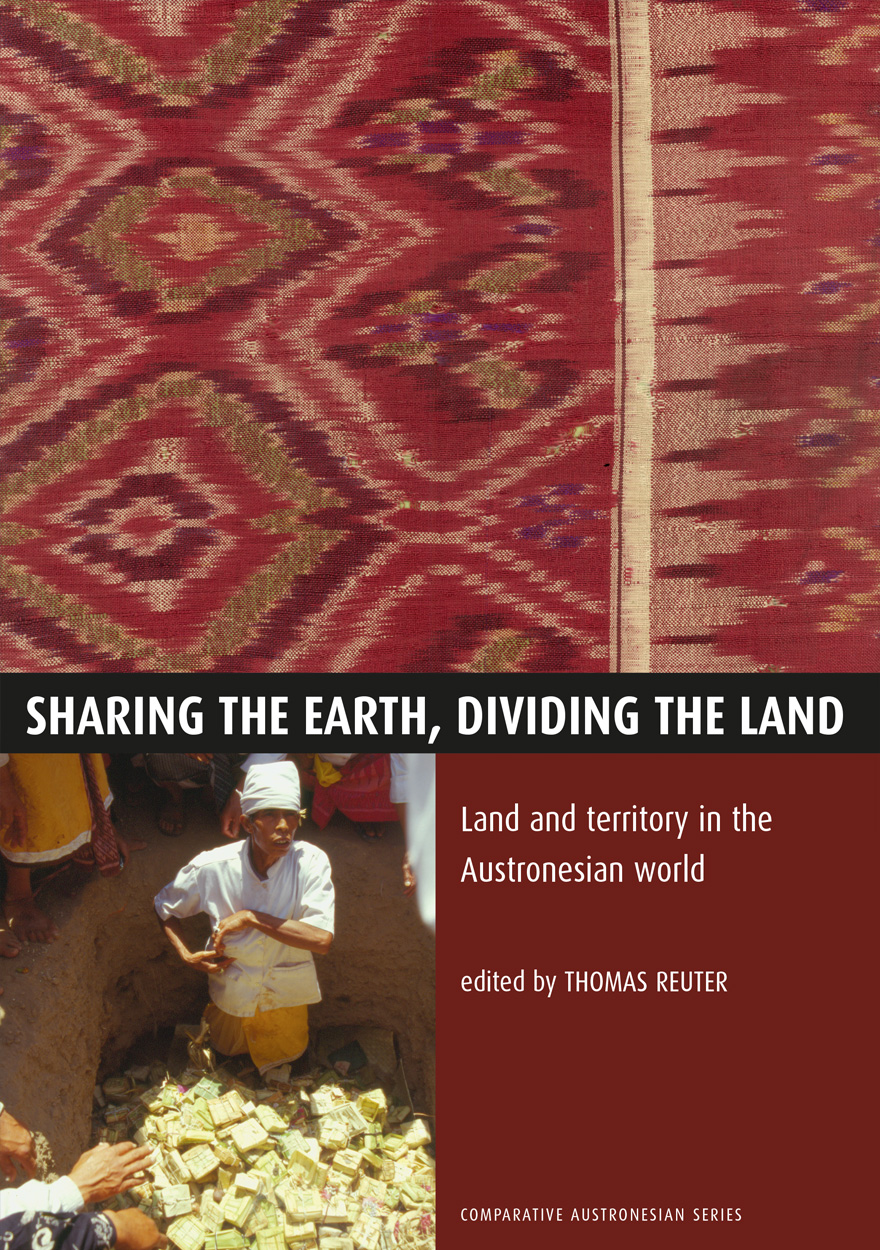
Sharing the Earth, Dividing the Land »
Land and territory in the Austronesian world
Edited by: Thomas Reuter
Publication date: October 2006
This collection of papers is the fifth in a series of volumes on the work of the Comparative Austronesian Project. Reflecting the unique experience of fourteen ethnographers in as many different societies, the papers in this volume explore how people in the Austronesian-speaking societies of the Asia-Pacific have traditionally constructed their relationship to land and specific territories. Focused on the nexus of local and global processes, the volume offers fresh perspectives to current debate in social theory on the conflicting human tendencies of mobility and emplacement.
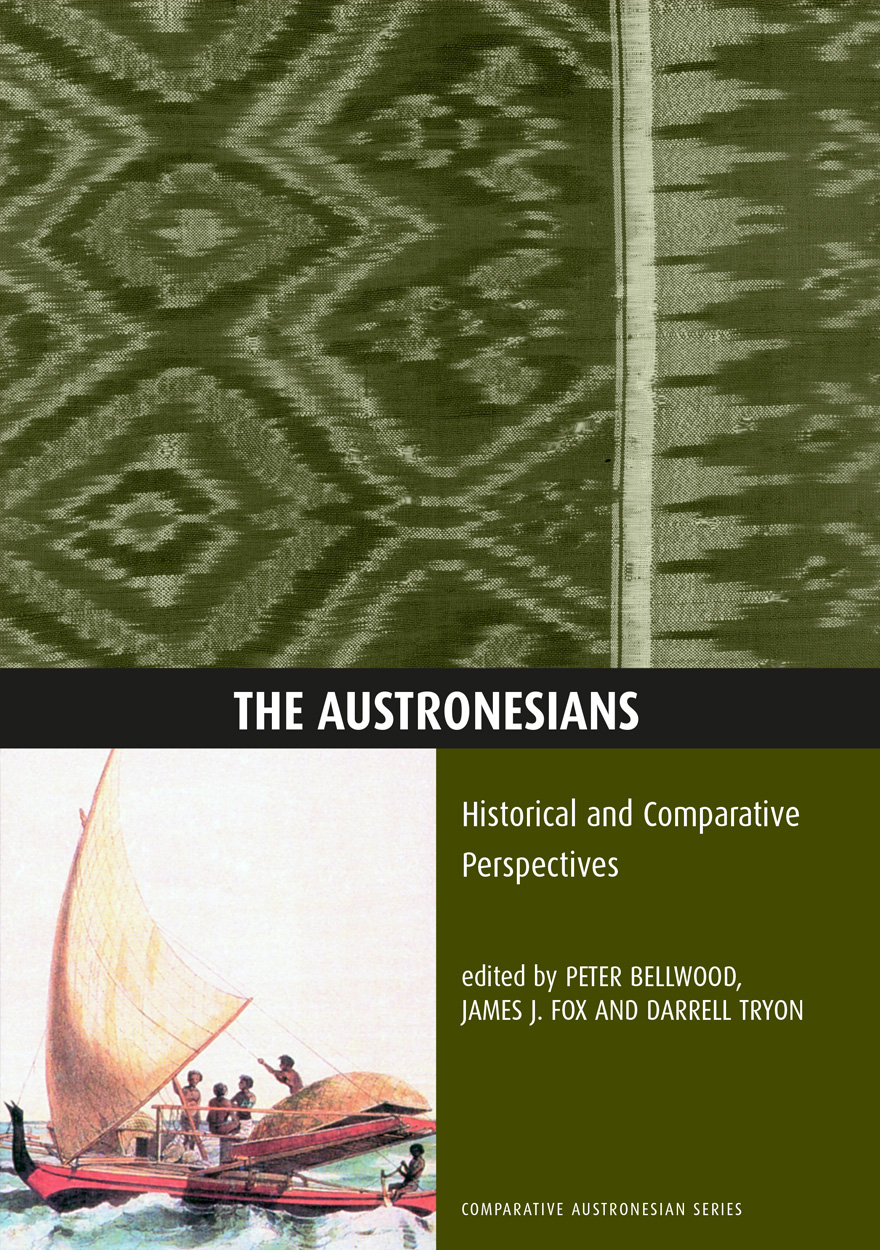
The Austronesians »
Historical and Comparative Perspectives
Publication date: September 2006
The Austronesian-speaking population of the world are estimated to number more than 270 million people, living in a broad swathe around half the globe, from Madagascar to Easter Island and from Taiwan to New Zealand. The seventeen papers in this volume provide a general survey of these diverse populations focusing on their common origins and historical transformations. The papers examine current ideas on the linguistics, prehistory, anthropology and recorded history of the Austronesians. This volume is a publication of the Research School of Pacific and Asian Studies’ Comparative Austronesian Project.

Inside Austronesian Houses »
Perspectives on domestic designs for living
Edited by: James J. Fox
Publication date: September 2006
The eight papers in this volume examine the spatial organization of a variety of Austronesian houses and relate the domestic design of these houses to the social and ritual practices of the specific groups who reside within them. The houses considered in this volume range from longhouses in Borneo to the meeting-houses of the Maori of New Zealand and from the magnificent houses of the Minangkabau of Sumatra to the simpler dwellings of the population of Goodenough Island in Papua New Guinea. Together these papers indicate common features of domestic design from island South-East Asia to Melanesia and the Pacific. This volume is a publication of the Research School of Pacific Studies’ Comparative Austronesian Project.



